KNSO
8th
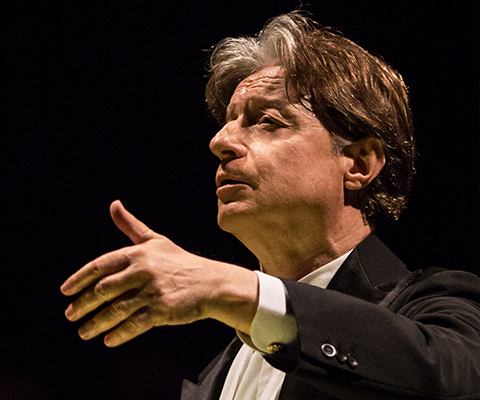
Roberto Abbado
8th Music director and chief conductor
Jan. 1, 2026
Music Director · Chief Conductor
Abbado is also deeply committed to contemporary music. Alongside major twentieth-century composers such as Luciano Berio and Olivier Messiaen, he has championed the works of leading living composers including Charles Wuorinen (b. 1938), Pascal Dusapin (b. 1955), Luca Francesconi (b. 1956), and Silvia Colasanti (b. 1975), frequently presenting world premieres and contributing significantly to the expansion of the modern repertoire.
His discography includes acclaimed recordings released on major labels such as Decca and Deutsche Grammophon, particularly noted for their authoritative interpretations of the bel canto operatic tradition. Outstanding recordings include Rossini’s Tancredi (winner of the 1997 Echo Klassik Award), Bellini’s I Capuleti e i Montecchi (selected as BBC Music Magazine’s Recording of the Year in 1999), and the French-language version of Macbeth (recipient of the Franco Abbiati Critics’ Special Prize in 2021).
7th
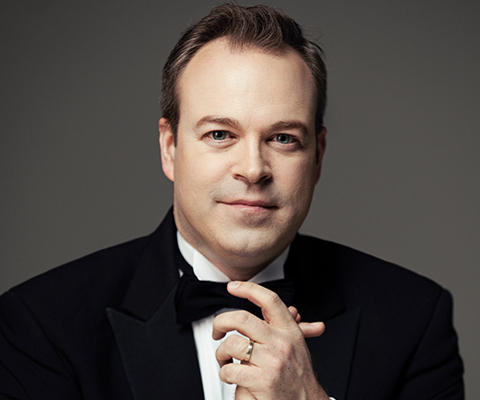
David Reiland
7th artistic director and chief conductor
Jan. 15, 2022
Artistic Director · Chief Conductor
David Reiland is also a musical director of the Orchestra National de Metz Grand Est and the first guest conductor of the Sinfonietta de Lausanne from 2018. In particular, he serves as the Schumann Guest of the Düsseldorf Symphony Orchestra in Germany. As Schumann spent much of his time in Düsseldorf where the music school (Robert Schumann Conservatory) was established in Schumann’s name, it can be said that the local musical circles highly appreciate Reiland’s musical prowess. Furthermore, he has been working with the world’s most preeminent orchestras, such as the Leipzig Gewandhaus Orchestra, the Orchestre de la Suisse Romande, the Konzerthausorchester Berlin, the Orchestre National du Capitole de Toulouse, and the Tokyo Metropolitan Symphony Orchestra. He was anointed with knighthood (chevalier) in the National Order of the Legion of Honour in 2023 from the French government, exhibiting his strong presence in the global musical world.
He has both French and German sensibilities, and is building his unique world of music. He boasts a wide range of repertoire encompassing French music by Berlioz, Debussy, and Ravel, the 19th century German music by Schumann and Strauss, representing his unique auditory sense beyond the conventional approach. Such a unique music community was created through intimate cooperations with numerous great master maestros, including Simon Rattle, Mark Elder, Vladimir Jurowski, and Roger Norrington. His interpretation of Mozart, which was influenced by Nikolaus Harnoncourt, has garnered rave reviews from critics the world over.
6th
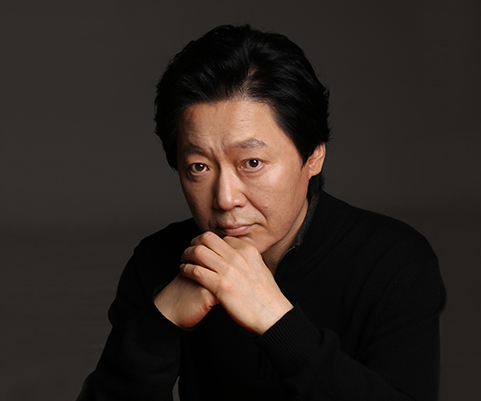
Chung Chi-Yong
6th artistic director and chief conductor
Jan. 13, 2018
Artistic Director · Chief Conductor
Chung Chi-yong is acclaimed for his wide range of repertoires from symphonies to operas, ballets, musicals, and even Gugak (Korean traditional music), and particularly, he is generally touted as Korea’s best expert in Isang Yun. He met Isang Yun in person several times in Yun’s later years, and shared a musical intimacy with each other, and premiered in Isang Yun’s major works, such as Symphonies No. 1 and No. 2, Angel in Flames (Engel in Flammen) for orchestra, Der Traum des Liu-Tung, and Die Witwe des Schmetterlings (Butterfly Widow). Being an accomplished opera conductor, he has conducted various operas, such as The Tales of Hoffmann, Così fan tutte, The Magic Flute, The Marriage of Figaro, La bohème, Carmen, Rigoletto, La traviata, etc. Notably, he premiered Wozzeck by Alban Berg, which was special program planned by the Korea National Opera in 2007, reaping much success.
Chung Chi-yong’s greatest achievement, as the 6th artistic director of KNSO, is that he stably continued KNSO’s musical prowess built together with the previous artistic director Lim Hun-Joung, and clearly guided its direction for further development. While releasing albums with DECCA, Chung also concentrated on performing creative music works, imprinting KNSO’s contribution value on the audience through various planned performances. In addition, even in challenging times where the entire performance art world came to a halt due to the COVID-19 pandemic, he demonstrated strong leadership and carried out his work brilliantly as an artistic director.
5th
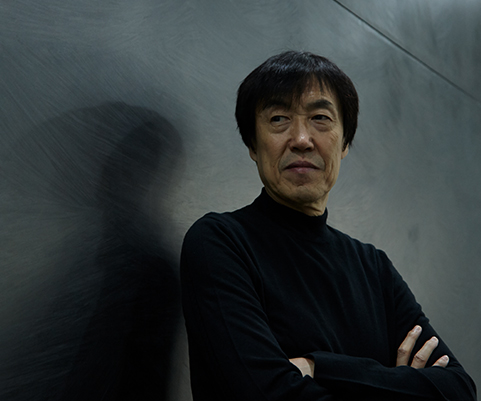
Lim Hun-Joung
5th artistic director and chief conductor
Jan. 26, 2014
Artistic Director · Chief Conductor
“A perfect understanding of the musical text and deep immersion into the performance is the creed always emphasized by Conductor Lim Hun-Joung,”
- Mun Hak-su, the deputy director of the Kyunghyang Shinmun
Lim Hun-Joung, the 5th artistic director of KNSO, stands out among Korea’s great conductors. Lim studied at the Mannes School of Music and the Juilliard School, and returned to S. Korea in 1985 when he was immediately appointed as a professor of the Conducting Dept. at Seoul National University. While teaching students, Lim was appointed as the 1st chief conductor of the Bucheon Philharmonic Orchestra, which was a new group in 1989, and led the orchestra for 25 years, overseeing its remarkable growth.
Conductor Lim Hun-jung’s innovation and challenges have long been widely known in Korean classical music circles. Lim premiered “Tale of the Soldier” by Igor Stravinsky while he was still studying the composition at Seoul National University, stirring up a sensation. He also conducted a number of the 20th orchestral music works by Arnold Schönberg, Anton Webern, and Béla Bartók, which were hardly ever performed in S. Korea, piquing the audience’s interest in 20th century orchestral music. Foremost, Lim’s most notable achievement is the performances of all of Mahler’s symphonies for the first time in S. Korea, creating the so-called “Mahler craze,” nationwide for about four years from 1999. It is not an overstatement to say that his bold challenge-taking is one of the most important factors that allowed Mahler’s symphonies to become universal repertoires of orchestras nationwide today.
Appointed as the 5th artistic director of KNSO in 2014, Lim Hun-jung focused on solidifying the orchestra’s musical prowess of KNSO, which was ascending as one of the best orchestras in S. Korea back then. Under his firm belief that creative interpretation is built on thorough and rational analysis of works, Lim took on the challenge of performing all of Bruckner’s symphonies and released the live recordings, establishing a key milestone in the history of Korean symphonic music. In addition, he introduced the composer-in-residence system, so that the orchestra assumes a key role not only in reproducing the music of the past, but also in promoting and disseminating contemporary music for the audiences.
4th
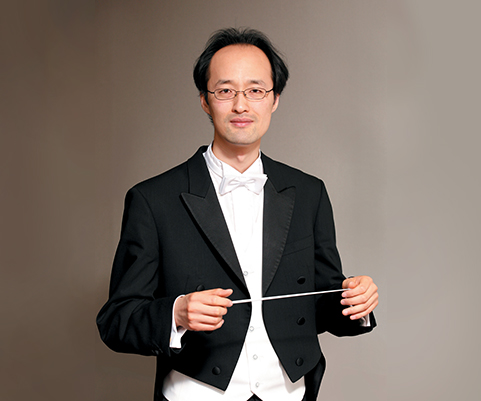
Choi Hee-Chuhn
4th artistic director and chief conductor4
Jan. 27, 2011
Artistic Director · Chief Conductor
After returning to S. Korea, Choi was touted by critics as a promising young conductor. He imprinted his clear and precise interpretations on audiences’ memories while serving as a guest conductor of major domestic orchestras, such as the Seoul Philharmonic Orchestra, the KBS Symphony Orchestra, and the Bucheon Philharmonic Orchestra. Notably, he showed his great strength on large orchestral music of Mahler and Shostakovich, winning rave reviews from enthusiasts. In addition, he is dedicated to fostering future generations as a professor of conducting at Hanyang University where KNSO’s former directors such as Hong Yeon-Taek and Park Eunseong also taught students.
Compared to KNSO’s former directors, the notable advantage of Choi was the fact that he was in his late 30s when being appointed as the artistic director. With his youth as a conductor, he was able to usher in a new wave to domestic classical circles by presenting new and innovative programs. As he was cited, “My conducting philosophy is to enjoy music together with the audience, not just performing sheet music.” Owing to his approach, the audience completed the performance by organically communicating with the orchestra, and they were highly enthused by KNSO’s performances of Mahler and Shostakovich conducted by Choi Hee-Chuhn.
3rd
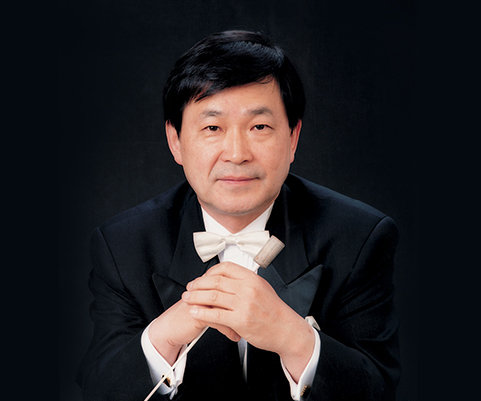
Park Eunseong
3rd music director and chief conductor
Dec. 1, 2007
Music Director · Chief Conductor
Park Eunseong also focused keen attention on introducing Korean orchestras globally. Notably, his performance at Carneigie Hall in celebration of its 100th anniversary, jointly invited with the Seoul Metropolitan Youth Orchestra in 1991, garnered stellar acclaim, for example “a remarkable orchestra” from the New York Times. He conducted the Suwon Philharmonic Orchestra at the 2003 Asia Orchestra Week, and the International Environment Music Festival, Germany in 2004.
In addition, he became the first Korean conductor to led the KBS Symphony Orchestra into North Korea in 2002, and conducted the performance of the KBS Symphony Orchestra and the joint performance between the KBS Symphony Orchestra and the State Symphony Orchestra of DPRK, capturing the attention of domestic and foreign media.
As the artistic director of KNSO, Park is credited with his contribution to establishing the stable sound of the orchestra. During his tenure leading the KNSO from 2006 after succeeding the 2nd music director Kim Min, he has had an intimate relationship with KNSO even before his appointment. Right after the KNSO’s founding, Park was on the stage mostly as a guest conductor, and served as a professor of conducting at Hanyang University following the first artistic director Hong Yeon-taek. Based on such relationship, Park Eunseong devoted himself to create KNSO’s unique sound by presenting new repertoires and communicating closely with the members.
2nd
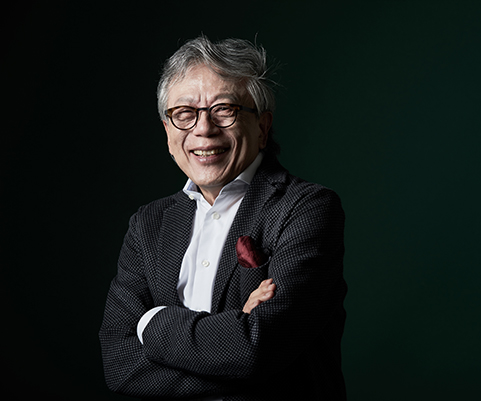
Kim Min
2nd music directo
Jan. 25, 2005
Music Director
As a highly esteemed musician in the world, Kim Min received the Poland’s Order of the White Eagle by the Polish government, the certificate and medal “A Life of Music” by the Italian government, and the Appreciation Plaque for participating in the festival for the past 20 years in a row by Wolfgang Wagner, the general manager of the Bayreuth Festival. Furthermore, he served as a judge at renowned competitions such as the Queen Elisabeth Competition, the International Henryk Wieniawski Violin Competition, and the Sendai International Music Competition.
When Kim Min was appointed as a music director, the first music director Hong Yeon-taek left the orchestra, which was shaken by losing a pivotal figure of theirs, so it needed to find the right person to put KNSO back on track. Kim had a profound understanding of the advanced orchestra system through his long-time experience with the orchestra, and he was a person with a sense of art administration, who had served as the dean of the College of Music at Seoul National University and as the music director of the Korean Chamber Orchestra. Notably, as he had an intimate relationship with Hong Yeon-taek, KNSO’s first music director, while the two met together as a music director and the leader of the KBS Symphony Orchestra coincidently, Kim was the right person to be the first music director and make a progressive change. Kim Min secured the position of KNSO’s residence group at the Seoul Arts Center, secured financial stability, and coincidently expanded the range of performances by taking full charge of managing the Seoul Arts Center’s special programs.
1st

Hong Yeon-Taek
1st music director, and chief conductor
March 30, 1985
Founded in 1985,
Music Director · Chief Conductor
Hong Yeon-taek’s crowning achievement is the founding of the Korean Symphony Orchestra (presently KNSO) in 1985, providing a new paradigm in the history of Korean symphonic music. He was dedicated to raising the bar of Korean classical music and diversifying it with a civic orchestra in the spotlight. He actively introduced works by Mahler, Bruckner, and Wagner, which were not often performed in S. Korea at that time, and carried out a variety of projects for creating a virtuous circle of the Korean music ecosystem by holding the Yongpyong Summer Music Camp, which was modeled after the Tanglewood Music Festival in the U.S., and founding the affiliated Center for Gifted Youth to discover and nurture talented musicians.
It was not an easy challenge to run a civic orchestra at the time when most orchestras were run by the national public sector and depended on the central or local government’s support. However, Hong established the orchestra membership system and gained various sponsorships, contributing to the stable operation of the orchestra. In particular, the Mecenat Program with Ssangyong Group, which lasted for some ten years from 1989 to 1998, is still remembered as the most memorable partnership between a corporate and an art organization. As such, Hong Yeon-taek laid the foundation of the orchestra by balancing between the two fields of art and administration, with his passion being a valuable foundation for the Korean National Symphony Orchestra, which is still playing a leading role in the Korean classical realm.